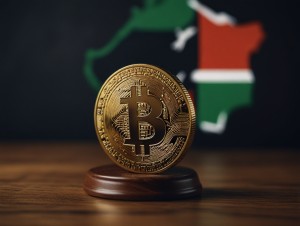Nigeria’s government recently cracked down on Binance‘s operations in the country, which led to the arrest of two top executives from the cryptocurrency exchange. This follows closely after the government decided to ban cryptocurrency exchanges altogether. The Binance officials went to Nigeria after the ban was announced, but as soon as they got there, the office of the national security advisor arrested them, putting them in a tough spot. Also, their passports were taken away, leaving them stuck in the country.
The backdrop to this drama is Nigeria’s aggressive stance against cryptocurrency trading and exchanges. The goal is to stop an alternate market that could make the naira, the country’s currency, even less stable than it already is. The value of the naira has dropped a lot, which has caused inflation rates to reach their highest level in thirty years. Due to the arrest of its leaders, Binance stopped trading the Nigerian naira with Bitcoin and Tether on P2P.
Olayemi Cardoso, the Central Bank Governor of Nigeria, singled out Binance at a press briefing. He said that he was worried about the flow of illegal money and questionable deals through crypto platforms, especially Binance. “In the last year alone, $26bn has passed through Binance Nigeria from sources and users who we cannot adequately identify,” Cardoso stated.
The government has also asked Binance to provide a full list of all of its Nigerian users since the its start, but the exchange has not yet publicly responded to this request. It is clear that the Nigerian government intends to extensively investigate the exchange’s transactions.
Meanwhile, Nigerian users of Binance are hitting a wall trying to access the platform’s peer-to-peer (P2P) trading feature, which seems to have gone offline. As of press time, the Nigerian Naira (NGN) is conspicuously absent from the list of currencies available for P2P trades on the exchange.
To comply with the Nigerian authorities’ crackdown on crypto, Binance had previously set a price cap on Tether (USDT) tokens on its Nigerian P2P platform at 1,802 NGN per coin, temporarily disabling the sell feature for this stablecoin. This was a compliance measure aimed at curbing the inflation and economic instability that have been plaguing the country.
However, this price cap had unintended consequences, locking out traders who attempted to sell above the set limit and pushing them towards alternative platforms without such restrictions. Binance attributed this cap to an automatic system halt triggered by significant fluctuations in currency value, assuring users that the measure was temporary and adjustments were underway to restore normal service.
The persisting issue with the P2P feature, however, suggests that resolving the matter might not be straightforward. Nevertheless, Binance’s customer support has assured that the service will be reinstated shortly, promising timely updates on the situation.





